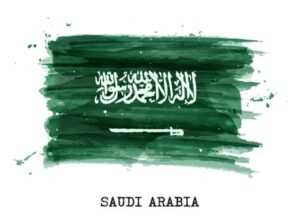Legal Basis
 The legal basis for patent law in Saudi Arabia is contained in Law no. 159 – Patents, Layout Designs of Integrated Circuits, Plant Varieties and Industrial Models Law of 2004.
The legal basis for patent law in Saudi Arabia is contained in Law no. 159 – Patents, Layout Designs of Integrated Circuits, Plant Varieties and Industrial Models Law of 2004.
The provisions for compulsory licenses are contained in Articles 24 to 30 of the Saudi Arabia Patent Law Decree.
Articles 24 and 25 of Saudi Arabia’s (Patent Law) provide that the City may grant compulsory licenses under the following two categories:
- To an applicant for an invention covered by patent of an integrated circuit covered by a certificate of design; and
- The City may also grant compulsory license to a party to exploit a plant variety covered by a plant patent.
The “City” refers to the King Abdulaziz City for Science and Technology (KACST), a government organization responsible for promoting science and technology, and coordinating scientific endeavor in the Kingdom of Saudi Arabia.
Procedure for Granting a compulsory license
1. Where an applicant seeks to obtain compulsory license under a patent covering an integrated circuit, the prospective licensee has to prove the following:
a. That the patent has been granted for at least 3 years or four years from date of filing the patent application, whichever expires later;
b. That the patent has not been exploited or that its exploitation has not met public interest; and
c. Reasonable efforts over a reasonable period of time were made by the prospective licensee to secure a license on reasonable terms all to no avail.
Article 24 further provides that the Committee set up by the City, deciding on whether or not to grant the compulsory license must specify in the decision, the scope and term of the license, and conditions for termination of the license, fair compensation to the patent holder, and an undertaking by the prospective licensee to pay same.
2. Under Article 25, where the prospective licensee seeks a compulsory license to exploit a plant variety, he must show that:
a. He is financially and technically competent; and
b. Efforts were made to obtain a license from the patent holder at reasonable terms but proved ineffective.
Article 25 further provides that for applications under plant varieties, the compulsory license shall be granted for no less than two years, and no more than four years.
When granted in Saudi Arabia, compulsory licenses are not exclusive and unassignable. Regarding assignments however, although not allowed under Article 26 of the Patent Law, an assignment may occur where there is a total transfer of the goodwill in the prospective licensees business. This has to be done with the approval of the City Authorities.
Appeal/Review
Compulsory license disputes are submitted to a Committee which is made up of three law specialists and two technical experts pursuant to Article 35. The Committee looks into all matters relating to infringements, appeals, oppositions to compulsory licensing and validity of same. The committee’s decision may then be appealed to the Board of Grievances (a civil judicial system) whose decision is final.
Jurisprudence
There are no cases relating to compulsory licenses in Saudi Arabia.
COVID-19 Regulations and Proposals
So far, Saudi Arabia has not passed any legislation relating to the COVID-19 pandemic.
In cooperation with: Wessel van Wyk (Smit & Van Wyk)
Image source: Shutterstock ID: 1019522134
________________________
To make sure you do not miss out on regular updates from the Kluwer Patent Blog, please subscribe here.



The convention on design of printed circuits is a sui generis law which has more or less disappeared from the radars.
It is interesting to see that it could be subject of a compulsory licence in Saudi Arabia.